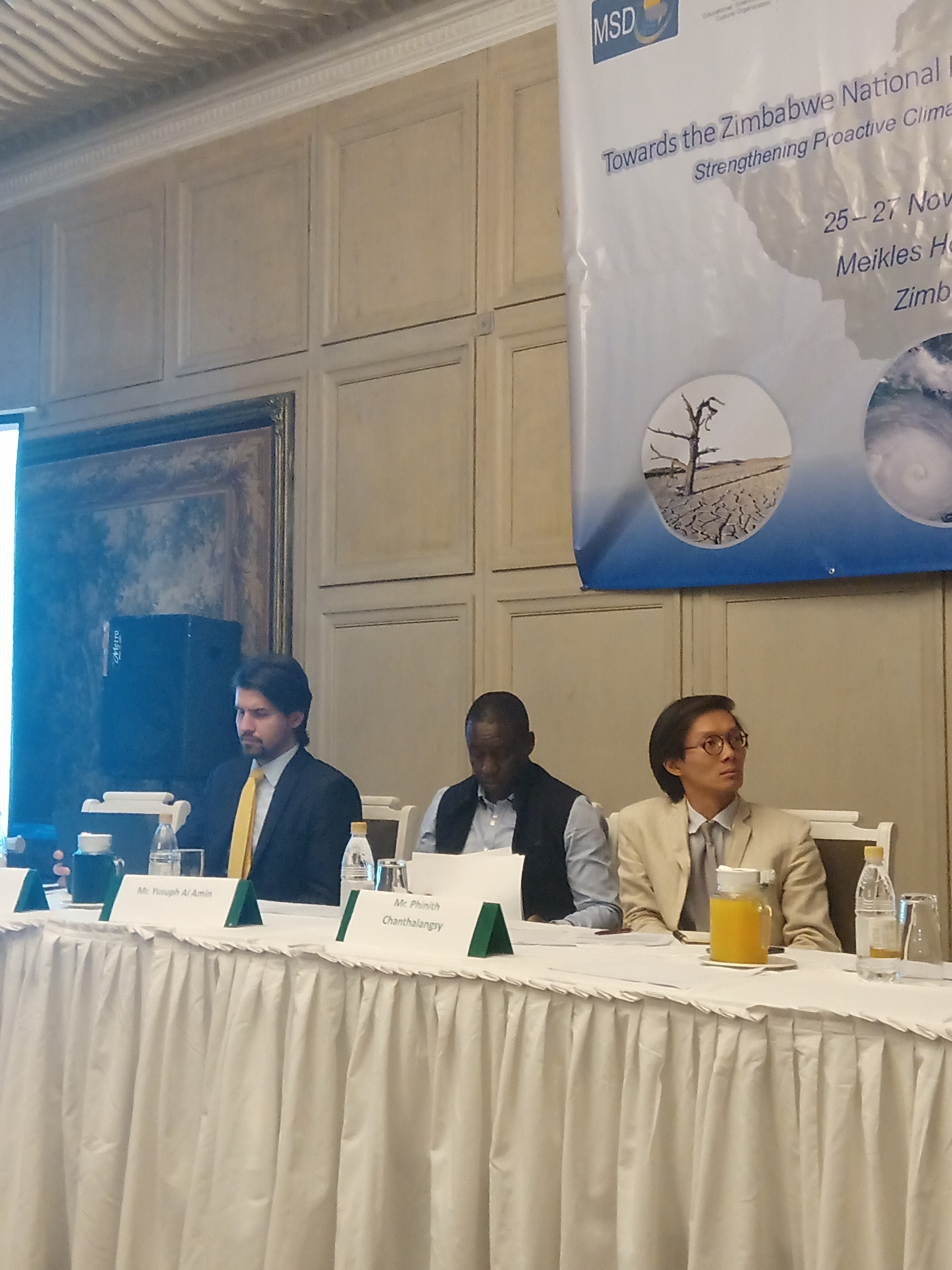By Joyce Mukucha
The Meteorological Services Department (MSD) has joined hands with United Nations, Education and Scientific Cultural Organisation (UNESCO), International Hydrological Programme, Princeton Climate Analytics and the Government of Zimbabwe in planning towards implementation of the National Framework for Climate Services (NFCS) to strengthen proactive climate risk management in Zimbabwe.
Considering the current capacities of climate change and the world full of uncertainties, the framework will provide a vehicle for scientific coordination to synthesise the state of the climate at national level and develop a holistic and effective climate services.
Speaking during a NFCS conference which was held last week in Harare, the MSD Director Ms Rebecca Manzou said her organisation was aimed at identifying gaps between existing and required climate services with focus on Agriculture and Food Security and Disaster Risk Reduction (DRR).
Recommendations were formulated on how to build upon the good progress made in recent years, in order to exploit the full potential of climate information for the selected priority areas.
“In this framework, we are starting with Agriculture and nutrition because we want that to survive though we are going to focus on other sectors later. We believe that we should come up with a meteorological service that suits every sector and we aim to contribute to economic development of the nation despite that the world is changing with climate change effects,” she said.
She added that many countries lack the infrastructure, technical, human and institutional capacities to provide high quality climate services. The MET Department, she highlighted will be soon in good place to carry its job effectively.
“As Zimbabwe, we are prone to extremes of weather therefore we are geared to prioritize private and private engagements , research institutions among other stakeholders of national and sub-national level needed to tailor climate information to sectoral needs as well as to turning our data into something which is useful for instance prediction of floods,” said Ms Manzou.
Overall, the workshop contributed to further consolidating southern African climate service capacities, thereby supporting the implementation of the NCFS in the country.
UNESCO Communication and Information Sector Representative Mr Yusuph AI Amin said there was need for preparedness, responses and mitigation of climate change to avoid future disasters. Referring to Cyclone Idai which affected Chimanimani and Chipinge earlier this year, he stressed that it was paramount importance to have early warning systems that will help in planning, automated weather systems and real time monitoring systems, and effective communication he said, that ensure that such disasters do not incur in the future.
A catastrophe, the first of its kind to be experienced in the area, left a trail of destruction in the communities of Chimanimani district, in the mountainous province of Manicaland, resulting in the deaths of more than 169 people in the area.
Amin pointed out that strong interfaces for communication and coordination between stakeholders was critical in fighting climate change ad disasters.
“There is need to strengthen the role of communication in DRR and reinforce and adopt communication mechanisms. Knowledge and skills in communication for DRR as well as consideration of local languages. It is also important to work much more on settlement patterns as well as strengthening localised rescue services,” said Amin.
He added that media has an important role to play in DRR therefore the need to for capacity building and supporting the media organisations in all processes.
The Director of the Deport of Civil Protection, Nathan Nkomo said disturbing weather conditions were becoming the norm and the framework will help in reducing the level loses in Zimbabwe that were being triggered with extreme climatic conditions.
He said his Ministry will try to ensure successful development of MSD in the implementation of the framework for the betterment of the nation. He stressed that it was significant to strengthen the MET Department by providing necessary equipment that will provide essential information on real time concerning tropical depression.
“We will extend as much support as we can to MSD pertaining the establishment of the National Framework for Climate Services. It is imperative to have coherent measures which address challenges that are being encountered. It is my hope that this framework will contribute to capacity building and infuse MSD in their various fields of operation. It is wiser to allocate more resources to this department which is carrying an important role so as to avoid the disasters in the future. Also, key sectors such as Hydrological Services must be put in place to ensure that this comes to fruition,” he said.
The framework is also aimed at reducing drought impacts in Zimbabwe.
